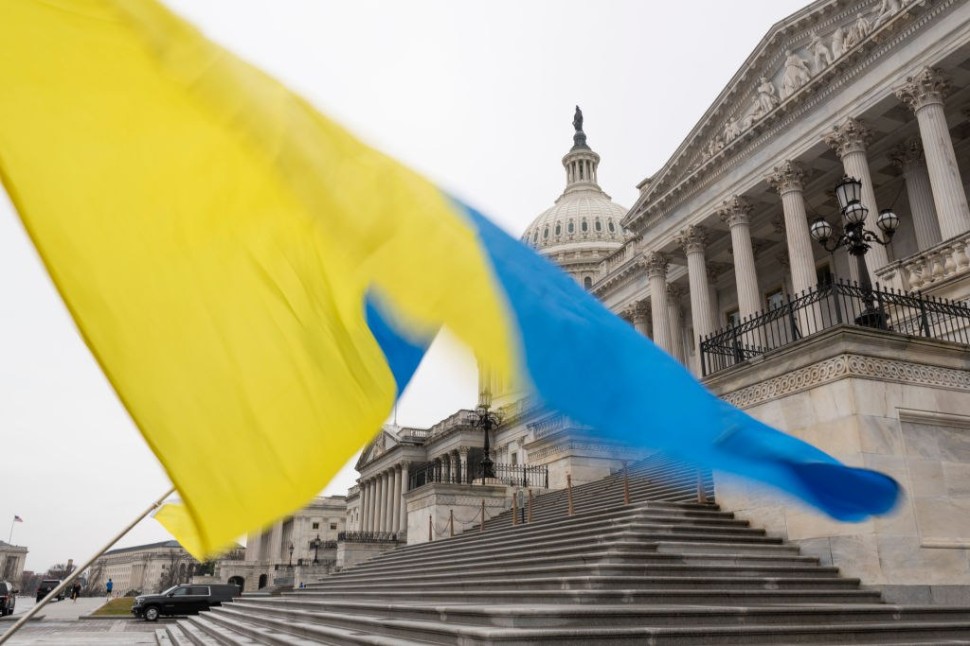
In an unprecedented move, the U.S. Senate voted to advance funding for Ukraine and Israel for the third time in a week. The decision faced stern opposition from conservative Republicans, who expressed dissatisfaction with the exclusion of a House-passed bill intended to heighten border security. Simultaneously, they scrutinized the undefined endpoint of the war in Ukraine.
Package Details and Senate Voting
Shortly before the much-anticipated Super Bowl, the Senate gathered Sunday afternoon and moved the $95.3 billion package another step toward final ratification with a 67-27 vote. The package, comprising $60 billion for Ukraine, $14 billion as security aid for Israel, $9 billion as humanitarian aid for regions including Gaza, the West Bank, and Ukraine, and $4.8 billion for ally support in the Indo-Pacific, had border provisions removed the previous week due to conservative objections to a bipartisan border deal.
Schumer's Stance on the High Stakes
Senate Majority Leader Chuck Schumer emphasized the gravity of the situation, linking it to the Russian President's invasion of Ukraine, which has left parts of Eastern Europe resembling a war zone unseen since World War II. He pointed out that Ukraine's supplies, including ammunition and air defenses, were critically low. Should America fail to assist Ukraine, victory for Putin is a real possibility, he cautioned.
Conservative Blockade Leads to Extended Recess
The Senate floor debate extended into the planned two-week recess as conservatives led by Senator Rand Paul protested the legislation by refusing to expedite votes.
ALSO READ: Hochul's New Consumer Protection Law Ends Surprise Credit Card Fees, Ensuring Price Transparency
McConnell Warns of Global Implications
Senate Republican Leader Mitch McConnell issued a stark warning following Schumer's speech, noting the broader international implications of failing to support Ukraine. McConnell stressed that U.S. allies were at risk, implying China would see this as a "green light" to project power in Asia and the Indo-Pacific.
McConnell added, "Our partners don't have the luxury of pretending that the world's most dangerous aggressors are someone else's problem. And neither do we."
Vance Highlights Aid Package Flaws
Senator Mike Lee declared that Schumer was dictating which amendments were permitted for voting, with virtually none being approved. While Schumer has repeatedly said he would consider a "reasonable list," Democrats highlighted that Republicans proposed over 80 amendments to the bill.
Senator JD Vance's office disseminated a memo detailing the "key flaws" in the Ukraine aid package. Vance's team emphasized that the $60 billion in aid for Ukraine would mark the largest amount approved by Congress to aid Ukraine since the war's onset two years ago. Simultaneously, they argued that the flow of weapons, ammunition, and material to the war effort could strain the U.S. industrial base.
Aid Viewed as an Implication for National Defense
Despite the dissent, Senate Republicans who back the legislation argue that allowing Ukraine to fall to Russia would damage American credibility globally and threaten U.S. economic interests in Europe. They maintain that most military funding for Ukraine would be spent domestically to replenish aging stockpiles and update U.S. military technology.
Senator Mike Rounds, supporting the advancement of the package, remarked, "Everybody talks about this being a Ukraine issue. This is a national defense issue for this country. We're rebuilding supply lines, we're rebuilding our arms, munitions, right now. A lot of the money we're spending is spent in the United States."




